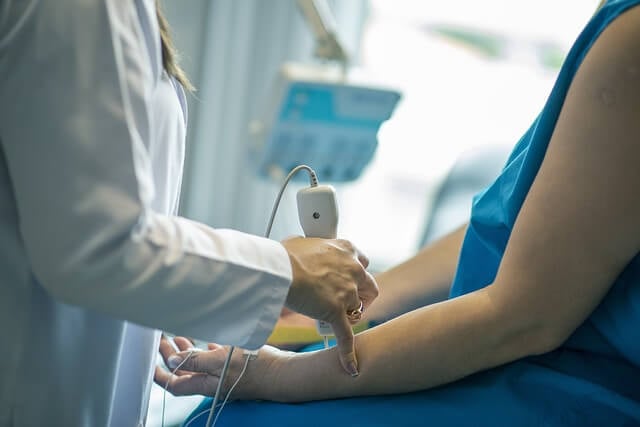A recent study from researchers at Brigham and Women’s Hospital, part of the Mass General Brigham healthcare system, confirms a notable increase in out-of-state residents seeking abortion care in Massachusetts.
The investigation, published in JAMA Network Open, reveals a 37 percent rise in the number of non-residents accessing abortion services in the state. Additionally, there has been an uptick in non-profit funding to cover costs for out-of-state patients.
The Dobbs v Jackson’s Women Health Organization decision in June 2022, which overturned the federal right to provide abortion care, prompted swift changes in state laws, including the implementation of 15 complete abortion bans. This led to a documented increase in travel to permissive states for abortion care, particularly from neighboring states with restrictive bans. Even prior to Dobbs, financial barriers were significant, with 60 percent of patients paying for their care out-of-pocket due to various factors, including limitations on abortion coverage in Medicaid and Medicare programs, limited private insurance coverage, and privacy concerns regarding insurance usage.
Dr. Elizabeth Janiak, corresponding author and a member of the Division of Family Planning at the Department of Obstetrics and Gynecology, noted that interstate travelers face heightened financial stress and the stigma associated with abortion, leading many to keep their experiences private. The study aimed to comprehend how funding allocation for abortion care and travel by various non-profits and charities changed post-Dobbs, given that abortion costs can amount to hundreds or thousands of dollars.
The research team conducted a retrospective review of 45,797 abortion care records spanning from January 2018 to October 2022 at the Planned Parenthood League of Massachusetts. They then employed time series analysis, a statistical tool commonly utilized to discern trends in health service utilization, to estimate the anticipated number of abortions post-Dobbs based on pre-Dobbs data.
Dr. Janiak emphasized the robustness of their study, highlighting the extensive dataset of pre-Dobbs abortions. Rigorous statistical modeling was applied to understand the deviation in the number of abortions in the four months post-Dobbs compared to the expected counts.
Upon comparing observed and expected counts, a 6.2 percent increase in total abortions was noted. Notably, when stratified by state of residence, there was a 37.5 percent surge in the number of out-of-state residents seeking abortions, translating to approximately 45 additional procedures.
Dr. Janiak further noted a shift in the origin of abortion travelers, with individuals now coming from farther states like Texas, Louisiana, Florida, and Georgia.
Post-Dobbs, there was a nearly ten percent increase in the proportion of out-of-state residents receiving abortion funding, rising from approximately 8 percent to 18 percent. Meanwhile, in-state residents’ use of funding only saw a one percent increase, from 2 percent to 3 percent, during the same period.
Dr. Janiak underlined that abortion costs already surpass the average out-of-pocket medical expenditures for reproductive age females in the U.S., and post-Dobbs, interstate travel costs are even higher.
Despite Massachusetts not sharing a border with any states with abortion bans, the study reveals a surge in patients traveling and accessing charitable funding post-Dobbs.
The study acknowledges limitations, including reliance on data from a single clinical source, potentially not fully representative of the entire state. Nevertheless, the significant increase in out-of-state residents seeking care at the largest abortion care provider in Massachusetts underscores the critical need to evaluate and fortify abortion service infrastructure in states without bans.
Dr. Janiak highlighted the pioneering nature of their analysis, particularly in a non-surge state, and outlined future research endeavors to gain a more nuanced understanding of barriers faced by individuals traveling for abortion care. Her team is conducting surveys of interstate travelers and in-state residents seeking abortion care, aiming to gather data on gestational age, pregnancy outcomes, underlying healthcare characteristics, and the psychosocial stress associated with travel for abortion, ultimately striving for greater equity in abortion care.
If our reporting has informed or inspired you, please consider making a donation. Every contribution, no matter the size, empowers us to continue delivering accurate, engaging, and trustworthy science and medical news. Independent journalism requires time, effort, and resources—your support ensures we can keep uncovering the stories that matter most to you.
Join us in making knowledge accessible and impactful. Thank you for standing with us!

